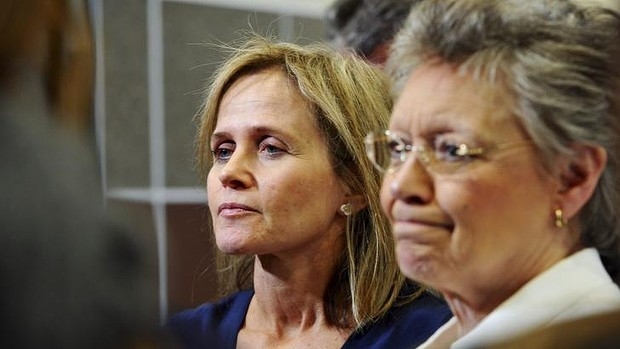
Medical researchers and activists have been left devastated by reports that dozens of delegates bound for Melbourne to attend the International AIDS conference were aboard the downed flight MH17.
Reports emerged on Friday that more than 100 of the passengers aboard the flight were en route to Melbourne for the conference that is due to start on Sunday.
The unconfirmed reports that delegates – including former president of the International AIDS Society and Dutch HIV researcher Joep Lange – were among those killed has sent shockwaves through the medical world, with many saying it would be a great loss to the HIV and AIDS community.
Michael Kessler from the International AIDS Society released a statement to the media on Friday saying it was a “truly sad day” if “friends and colleagues” had perished in the crash.
“At this incredibly sad and sensitive time the IAS stands with our international family and sends condolences to the loved ones of those who have been lost to this tragedy,” he said.
“The IAS has also heard reports that among the passengers was a former IAS president, Joep Lange, and if that is the case then the HIV/AIDS movement has truly lost a giant.”
AIDS 2014 local co-chairwoman Sharon Lewin choked back tears while expressing her sadness at an event at the National Press Club in Canberra on Friday.
“If what we hear is confirmed, this will be a big loss to the HIV community,” she said.
“Joep Lange and his wife were good friends. [Joep] also played a major role in the response to HIV. He was absolutely passionate about global health and he did this with his usual great style. He was a real renaissance man, he was a great scientist … and was wonderfully well read and loved music, art and literature. He will be missed.”
Professor Lewin said she, like every Australian, was greatly saddened by Friday’s news that 298 people had lost their lives in what she described as “an absolute wasteful loss of life”.
Francoise Barre-Sinoussi, who received a Nobel laureate for her role in discovering HIV, also expressed her grief at the unconfirmed reports that colleagues and friends may have been aboard MH17.
“We are waiting for confirmation and hoping it cannot be confirmed,” she said. “Of course, it’s a terrible loss for all the community. It’s a terrible loss for the families and we really are thinking about the families.”
Professor Barre-Sinoussi, who spoke at the press club before the start of the conference on Sunday, said Professor Lange had played a very important role in the fight against HIV and AIDS.
“This is really someone special – he is a giant for us,” she said.
Professor Barre-Sinoussi said it was too early to say what the impact would be on the HIV AIDS community as the deaths had not yet been confirmed.
“We don’t know how many were on that flight and of course, now, we cannot say what will be the impact on the community for us.
“The main point for us is to know whether it’s confirmed yes or no, how many were on the flight and also we’re not thinking only about our colleagues, it’s the other passengers we have to take into consideration.”
She remembered Professor Lange as a great professional and wonderful human being and said it would be “totally devastating” if he had died in the crash.
Norman Fowler, who was health secretary in Margaret Thatcher’s government for six years and has just published a book on HIV, said news of the missile attack was “absolutely horrific and terrible”.
Professor Barre-Sinoussi said the decision to go ahead with the conference was what their colleagues would have wanted.
Professor Lewin said Professor Lange was a “visionary” in the early days of the HIV AIDS epidemic.
Australian Medical Association president Brian Owler also offered condolences to those who lost loved ones.
”It is hard to comprehend that so many people could suddenly lose their lives in these unpredictable and unexplained circumstances,” he said.
”The dedication of all the lost AIDS experts has made a profound difference in improving the life of those with HIV, particularly in resource-poor countries.
”The world has today lost many people who have played critical roles in the global fight against HIV.”
Source: Sydney Morning Herald
